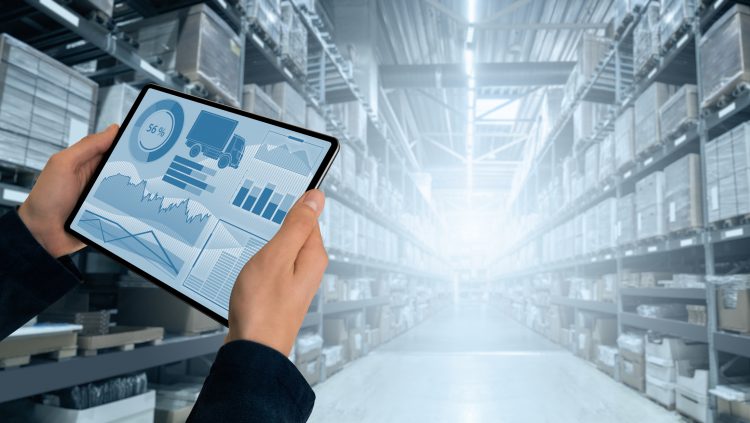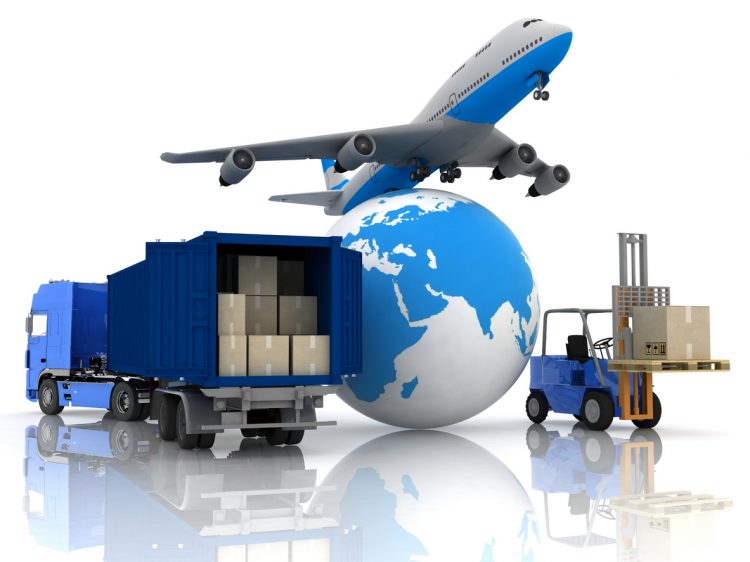For any business relying on transferring physical goods, perfecting its logistics processes is an absolute must.
Logistics is the backbone of any business, ensuring that the whole supply chain management, delivery, and shipping work as efficiently as possible. If you want to overtake the competition, improving your logistics is the first step to enhancing operational efficiency and productivity.
With that said, here are seven steps to optimizing and improving your logistics, which will benefit your overall operations.
1. Optimize Warehouse Management

Warehouse management is a critical aspect of any logistic process since it impacts everything, from inventory management, to lead time, to even product quality.
Effective warehouse companies, such as Cargo County, largely depend on the type of product it stores. However, regardless of the goods being stored, some improvements can help in reducing wastage and speeding up your logistics operations. For example, using vertical columns can help maximize storage space. Also, implementing industrial weighing scales can help your warehouse staff to weigh goods more accurately and faster.
In addition, you should also consider services like cross-dock. Cross-docking helps limit the number of time goods spend in the warehouse. Workers will have to sort incoming goods before transferring them to outbound trucks. Although this service isn’t suitable for every business, employing a cross-docking operation allows your business to minimize material handling and useless warehouse space. This should help increase product quality, reducing the number of returns, and improving customer satisfaction.
2. Improve Inventory Management
Managing and measuring your inventory is another step to increasing your operational efficiency. Having an accurate sense of inventory levels is critical to cutting costs and making sure that you meet demands.
By having a good inventory management system in place, you can avoid the out-of-stock scenarios, as well as prevent the purchase of too many products, the higher shipping costs that come with it, and the added costs of storing the excess goods.
3. Employ New Technologies

Advances in technological development have given birth to ingenious innovations that are helping enhance logistical operations.
Modern systems and tools are now available to speed up operational efficiency and lead times by eliminating human error and reducing manual interference.
From the GPS system to track your delivery, vehicle, and fleet in real-time, to smart weighing scales that easily integrate with warehouse management systems, to communication and collaborative software that provides real-time updates for any movement of physical goods—there’s a customized solution for practically just about any logistic challenge that you might be facing today.
4. Train Your Biggest Assets
Most logistical mistakes start with those who handle the goods. You can have the best vehicles, state-of-the-art software, and the highest quality products on the market, but if you’re understaffed or your logistic staff isn’t properly trained for the fast-changing technological trends in your logistic processes, then all other efforts can easily go to waste.
Thus, you want to invest in educating your staff—bridging the gap between the modern and traditional style of managing operations—and ensuring that there’s always enough of them to handle the growing demand of your business.
A great way to do this is to have an HR representative provide training sessions for your staff or have them attend relevant seminars, conferences, and training workshops regularly in order to keep them updated with the latest techs and trends in the logistics industry. This should increase operational efficiency, as well as customer satisfaction.
In addition, you also want to hire a logistics manager with good interpersonal skills and have the perfect skillset. Sometimes, things don’t work according to plan. In such situations, you need a reliable person who can help sort out any issue with the utmost efficiency. Furthermore, an experienced manager should have authoritative contacts in your industry and could be beneficial in tapping business opportunities.
5. Examine And Re-Design Transportation

Transportation is considered the largest expense in logistics. And, it even gets more expensive if it’s not implemented or planned properly. It also has a major impact on delivery timeframes and ROI, particularly if goods are damaged or missing in transit. Regardless of the industry, a rise in transportation costs means a rise in the prices of goods.
Analyze your transportation process and determine where expenses are highest. You can start with load planning and delivery route, picking the safest and shortest route, and using truck scales to ensure that the vehicle carries full loads. This is essential for saving time and money.
In addition, product packaging should also be designed in order to minimize weight and size, without compromising security.
6. Measuring Improvements
Logistics optimization is incomplete without measuring results, feedback, and analysis. When you deploy new strategies in your business, you need to measure the output since it shows whether the strategies you implemented are successful or a failure.
Measurement software and tools should be integrated in order to classify and determine the information as per the requirements. Your future logistics planning will be heavily dependent on the metrics you get.
So, make sure to analyze metrics related to various operations, including cost metrics, cycle time metrics, and service metrics.
In addition, generous feedback can also help in improvising your strategies. Thus, the suggestions and ideas of your employees should also be recorded. This ensures that you generate a pool of ideas, as well as helps in revealing any flaw in your system and operations.
7. Observe Your Competitors

If you want to outshine your competitors, then you should learn from them. Some businesses only see their competitors as hindrances. However, this won’t help you achieve your goal of optimizing your logistics and overall operational efficiency.
You want to take a close look at your leading competitors and see what specific tools and technology they have that keep their logistical competitiveness high. In general, you want to take note of your competitors’ modern software systems, training programs for their staff, and the newest strategies and techniques in logistics management.
Conclusion
There’s always room for improvement in any aspect of your business, and that includes logistics. Using the above strategies can help bring up your logistics game, and ensure overall good efficiency and productivity in your business operations.
 Hi Boox Popular Magazine 2024
Hi Boox Popular Magazine 2024



